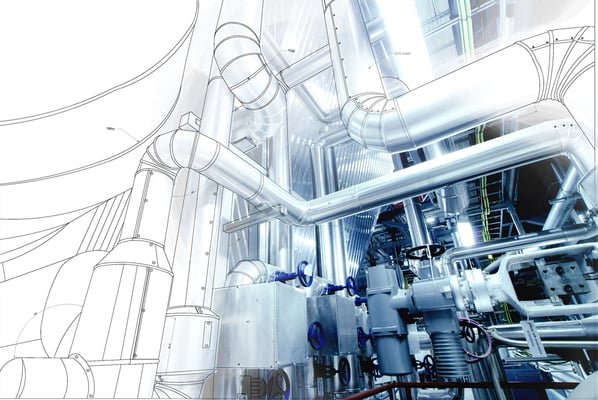How Equipment Suppliers Can Boost Sales With Revit Family Creation

Construction projects will slow down during the coronavirus outbreak, and equipment manufacturers can expect a drop in their sales. However, suppliers can use this time to create digital twins of all their products, using the Revit Family Editor. When building projects resume their normal pace, design engineers can specify equipment faster with digital models. By having their equipment specified in many approved projects, manufacturers can boost their sales.
When Revit families from vendors are available, the design process becomes easier and faster. Revit family creation is also a powerful marketing tool since design professionals can add specific products to their building models. Even if other vendors offer equivalent equipment, clients will tend to purchase the components specified in approved designs.
Are you an equipment supplier? Revit family creation can help increase your sales.
How to Use Revit Family Creation Effectively
In Revit modeling, building elements are classified into three family types with unique features:
- System families are part of Revit's internal database. They contain general building elements like walls, floors, and roofs. System families also include elements used in construction documents, including model views, annotations, and dimensions.
- Component families contain custom elements that are created by users. These components are independent of a specific building model, and they can be loaded into multiple projects. For this reason, component families are also called loadable families.
- In-place families contain custom elements, just like component families. However, these components are bound to a specific building model. They are useful for modeling unique components that will not be used in other projects.
By creating a virtual library of their products, manufacturers can simplify the design process for engineers and architects. When an equipment supplier does not offer Revit families, design professionals must model components from zero, based on technical specifications.

Architects and engineers will prefer manufacturers who offer Revit families of their products since they are easier to work with. This serves as a marketing strategy since modeled components tend to be specified in more projects. Revit family creation also accelerates sales by making the design process faster. When a manufacturer offers a complete Revit family of products, there is a greater chance of having many components specified in the same project.
High-priority construction projects will be allowed to continue during the coronavirus outbreak, but equipment suppliers should prepare for a slowdown in sales. This is a great opportunity for suppliers to focus on Revit family creation, to offer a complete digital library of their products. When construction activity returns to normal after the emergency, equipment suppliers who have their products modeled in Revit can reactivate their sales faster.
How Revit Families Help Engineers and Architects
The building modeling process in Revit is simpler if components have already been modeled individually. Otherwise, design professionals must create equipment models from zero, extending the design process. On the other hand, when Revit families are available, building system models are created more easily by combining family elements.

When manufacturers offer Revit families of their products, they also reduce the chance of errors. The components added to the building model are exactly as specified by the supplier, and this includes dimensions and part shapes. On the other hand, when design professionals must recreate a piece of equipment with no existing model, clashes are more likely.
A Revit family must also be user-friendly to be helpful. Revit allows hosted and stand-alone families, and using the right type for each product line is important:
- Hosted families depend on other elements when added to the Revit model. For example, windows may be part of a hosted family that depends on walls.
- Stand-alone families can be added individually, without depending on another element of the building model.
Hosted families are useful when components are designed for very specific applications since they help prevent specification errors. However, stand-alone families provide more design flexibility. Equipment manufacturers can use a combination of hosted and stand-alone families to provide design flexibility while preventing the incorrect use of sensitive components.
When prefabrication is used, Revit families can make the project even faster. While prefabrication speeds up construction, equipment suppliers can accelerate the design process by offering digital twins of their products.

Michael Tobias
Michael Tobias, the Founding Principal of NY Engineers, currently leads a team of 150+ MEP/FP engineers and has led over 4,000 projects in the US
Join 15,000+ Fellow Architects and Contractors
Get expert engineering tips straight to your inbox. Subscribe to the NY Engineers Blog below.

